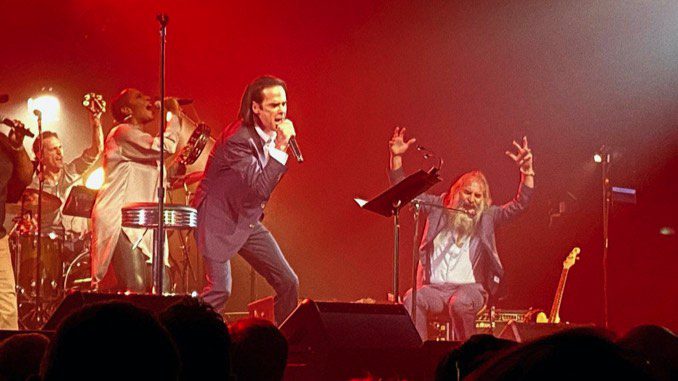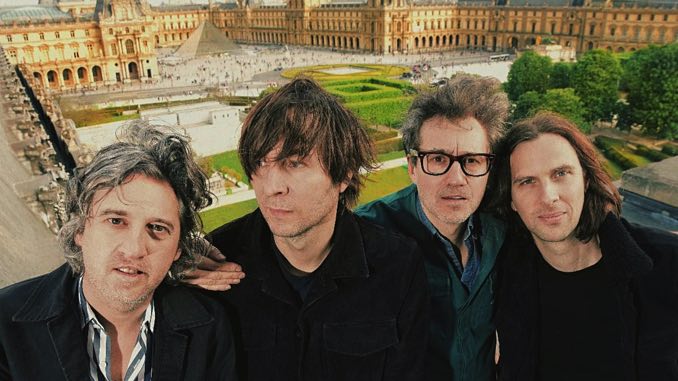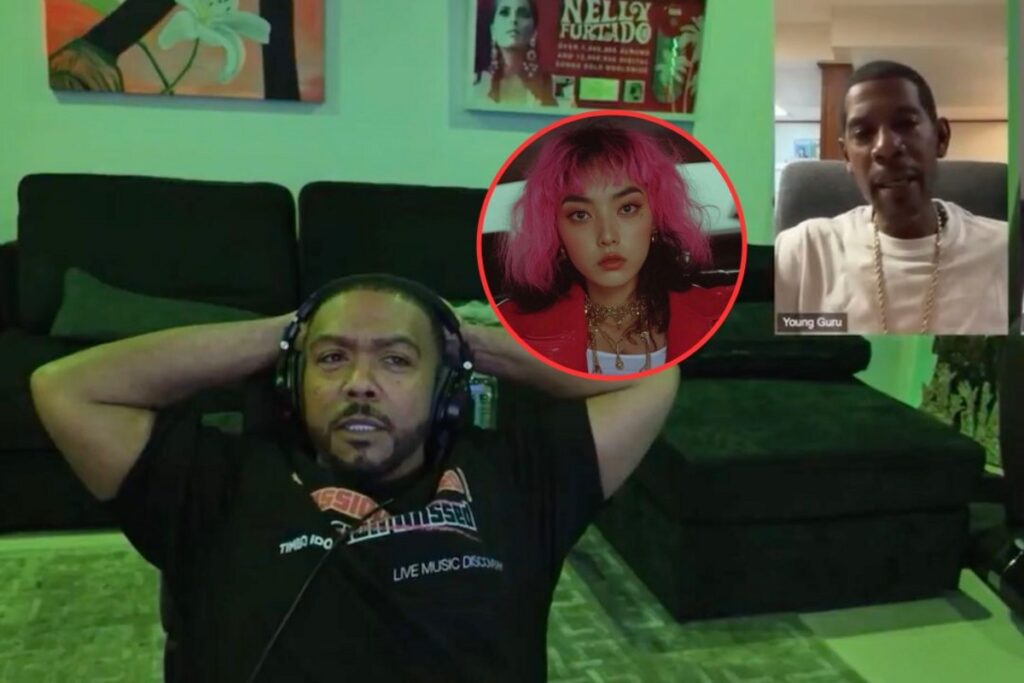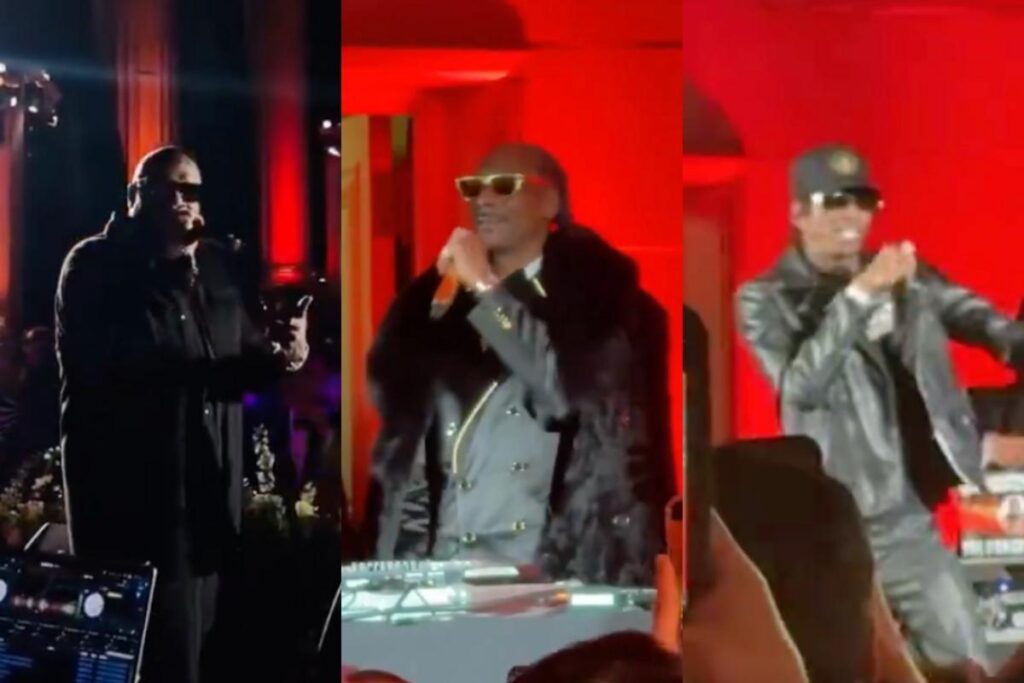Let me start by saying that I have never written about a concert before, and I don’t typically write about music. I am primarily a film and entertainment writer, though I understand that “entertainment” can include music, sure. But only very recently have I begun to dabble in music writing at all. The fact is that most of the writing on music that I ever do has been in relationship to film or it’s been about Nick Cave.
As many of my friends and close acquaintances know—and are surely tired of hearing about—I got into Nick Cave last July, after watching Wim Wenders’ Wings of Desire. In the 1987 film starring Bruno Ganz, where Ganz portrays an angel from heaven who watches over the people of Earth, growing fondness for them until he wishes to become human, Nick Cave functions as a strange, connective tissue. Cave’s music is first played diegetically by a character, and then, later on, we witness a real live performance by Cave and his band, Nick Cave and The Bad Seeds. At the time I watched the film, I knew Nick Cave like anyone knows the name of a famous artist through pure internalized sublimation of pop culture, a very imprecise awareness granted just by being someone interested in entertainment and art. I was mostly familiar with him through his (arguably most famous) song, “Red Right Hand,” which I had downloaded at one point onto my iPod Classic, and I’ve listened to it frequently. I knew what Nick Cave looked like, I knew the name of his band, but I didn’t know any of his other music or anything else he’d done. Yet when Solveig Dommartin’s character, Marion, played the Bad Seeds’ album From Her to Eternity on her record player, and Cave’s haunting cadence recited the lyrics to “The Carny,” I instantly asked myself, “Is that Nick Cave? I think that’s Nick Cave.” I barely knew this artist, yet, somehow, I just sort of knew it was him.
And when Cave and his band appeared as themselves in their performance towards the end of the film, I was instantly spellbound. Cave has a peerless presence. He is ghoulish and towering and impenetrably handsome; his voice can vacillate between eldritch howls and Gregorian intonations of spoken word, all sustained by an innate sexuality that is inseparable from his music even when he’s singing about lecherous perverts and killers. He emerges in the film like an alluring angel of death, with his rail-thin, gangly build and signature loose, slicked-back black hair, which he maintains even as he now fast approaches his mid-60s. Cave’s was not the kind of music I typically listened to. Since I spent high school forcing myself to believe that I actually enjoyed the sounds of pop-punk, hardcore and “screamo” music like my group of friends did, I had, in some sort of subconscious act of self-defiance, geared myself almost exclusively in the opposite genre direction post-graduation. After years of forcing myself to listen to music that I didn’t really think sounded very pleasant, I only wanted to listen to music that was the utmost palatably catchy.
I had also not been to a concert since long before the COVID-19 pandemic. The last one I attended was Tyler, The Creator in Lancaster, Pennsylvania, back in 2017. It feels like a weird thing to admit, but as I got older, I simply fell out of touch with music. I became committed to music that only elicited simplistic, pleasant emotions out of me and, thus, I lost interest in seeing any artists who I enjoyed perform live because I no longer had any passion for them. Not to be annoying, but something shifted in me when I started listening to Nick Cave. My relationship to music changed—my perspective on what music could do for me changed. I still listen to catchy, palatable pop music, to be clear. I openly love Taylor Swift, and Doja Cat, and Dua Lipa, and Lana Del Rey—and not in any sort of “guilty pleasure” sense, either. I listen to them as often as I do Nick Cave. But I fell deeply in love with Cave’s music and various other works last year in a capacity I had not experienced before with music or any art, really, further enhanced by the way Cave’s presence as a pop-cultural figure is closely linked to cinema. Between his multiple bands, film scores, screenplays, documentaries, and novels both written by him and about him, I became somewhat insufferably obsessed with him. But I truly feel like my life became better in being exposed to Nick Cave’s art.
Here we finally arrive at the Nick Cave & Warren Ellis North American tour, which I attended on the evening of Thursday, March 24, at Kings Theater in Brooklyn. After painstakingly following along with Cave and Ellis’ European tour during fall 2021 via Instagram at the height of my obsession, and waiting with an increased sense of urgency for them to finally post North American dates, I snatched up a ticket for myself and my friend as soon as they became available back in November. They were not the most expensive tickets in the world, especially in comparison to how much I know concert tickets can cost. But as someone who frequented shows on a rolling basis during high school and college, it was the most money I had ever spent on concert tickets before.
The idea of seeing Nick Cave in person was just thrilling to me, so much so that I pushed the impending concert to the back of my mind for the following four months as to not overwhelm myself with anticipation. Because of the art that he creates, the look that he has cultivated, and the way he conducts his dramatic onstage performances, Cave has fashioned himself a sort of impenetrable mystique as an artist, even though any interview or extended recording of him, or one of the many Q&A posts on his ongoing blog, The Red Hand Files, readily eliminates any pretense of him embodying a stereotypical “rock star” persona. Cave is neither bombastic, nor self-obsessed; rather, he is soft-spoken and a little insecure. He loves theatricality, but he is incredibly humanist and thoughtful, and he feels deeply connected to the people who appreciate his work in way that can’t help but read as unshakably genuine.
This intimate universality in Cave’s approach to his fans, despite music which is frequently inaccessible to a general audience, translates through to the audiences who consume his work and come to his shows, something I witnessed firsthand at Kings Theater. People of all ages and demographics were there, to such a degree that I had never experienced before as someone whose concert-going experiences were frequently made up of the same five kinds of 20-somethings all wearing black beanies. There were people who looked like my dad, those who were his age and older, and people my age and younger; there were middle-aged moms and punk-rock teens. Guys in newsies caps, women done up in fancy dresses, and others wearing a T-shirt and jeans. The most normal-looking person you can imagine and the most eccentric-looking, too. I saw a small, frail older woman slowly ambling around the lobby of the venue, who had to be at least 70. Cave’s music is so varied and yet feels like it’s reaching out to you so directly, it can’t help but move people from every walk of life.
When Cave arrived onstage, everyone in the audience stood for him like he was royalty. Most people did not sit down again. As Cave has spoken of before in interviews, when he performs, he feels most closely connected to the front row; those he can reach out to and touch, and even sing to—and he often does. He is sparing when it comes to banter in between songs, and it seemed that he quickly ran out of things to say (he repeatedly shouted “Brooklyn” at us). Still, Cave certainly connects with those in the outer reaches of the theater, and it did not stop the audience from calling out to him. Despite the reverence held for him, the lulls in between the slow, ambient electronic numbers from his and Ellis’ 2021 album Carnage and the Bad Seeds’ 2019 album Ghosteen gave way to enthusiastic proclamations offered in the hopes of a response. During a performance of “God Is in the House” off No More Shall We Part, a quiet moment saw one zealous attendee piercing through the silence to shout “Hail, Satan!” in cheeky response to the nature of the song. While mostly eye roll-inducing, Cave’s reaction was not. He was so taken aback by the declaration that he needed a moment to recompose himself. Once he did so, he then dedicated the next part of the song to the “Hail, Satan” guy.
Perhaps it’s due to their age, but Cave and Ellis—longtime artistic collaborators and true bosom buddies—were very candid and loose during the two-hour concert, made more charming in contrast with the often heavy nature of the songs they performed. They had a recurring bit in which Ellis would intro a song by drawing out a countdown for it very slowly, eliciting laughter from the audience. When they had finished performing “White Elephant,” one of the more buoyant, vigorous numbers off Carnage, Cave said that rendition went well, admitting that performances of “White Elephant” run the risk of going very wrong. Cave would often, mid-sentence, run out things to say and punctuate with a “fuck it” or “whatever” before starting another number, but not because he didn’t care, and the audience knew that. When he performed “Balcony Man” towards the end of the show, he encouraged the people in the balcony of Kings Theater to cheer every time he uttered the word “balcony” during the song. Like fervent members of a cult, the balcony-goers enthusiastically hollered every single time. Cave got a kick out of it.
And during the second song of the night (“Bright Horses”), I found myself starting to cry, just as I had suspected I might. It was overwhelming to finally see Cave in the flesh, as a person instead of as a crazy little guy on my screen or in my headphones, and to feel the music I had been listening to for months played so loudly that I could feel it vibrating through my body. I had often thought that I would never really be “into” music ever again, even if such a statement sounds a tinge sociopathic. I listen to a lot of music (even though I am considerably picky) and I listen to it frequently, but even before I severed my strong relationship with music, I had never before responded to it in the way that I do with films.
For me, getting into Nick Cave was more than just once again becoming too fixated on a brand new thing that I felt incapable of shutting up about to anyone with the ability to listen to me. It fundamentally changed how I see the world, and it opened up for me a new way of thinking about music, how people connect with it and why, and about my own creative pursuits. It was about forming a new relationship to art and an understanding of what a different medium could do for me, emotionally, when I had previously written it off. And as I watched Cave and Ellis perform at their show, there was a layer of separation I felt removed between these particular artists and their fans. They seemed less like renowned cultural icons putting on a show, and more like a couple of friends on a well-lit stage who just wanted to show their music to some people who just happened to want to listen. As much as I felt like seeing Nick Cave live was the ultimate pinnacle of my preoccupation with him, it did not actually heighten his mythic status in my mind. If anything, it brought me back down to earth, more receptive now to the journeys I will take with countless other artists like him.
Brianna Zigler is an entertainment writer based in Brooklyn. Her work has appeared at Gawker, Polygon, The Playlist, Consequence, Little White Lies and more, and she writes a bi-monthly newsletter called That’s Weird. You can follow her on Twitter.




